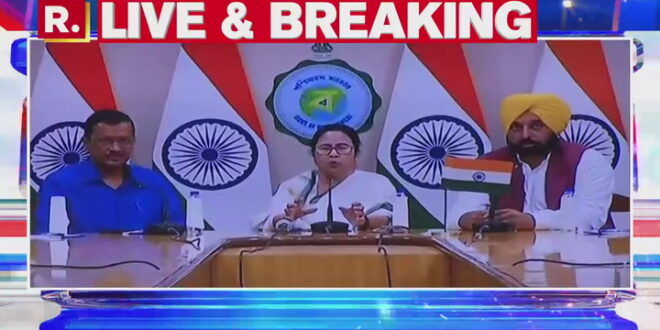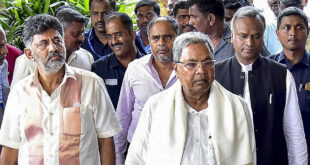In a scathing attack on the central government, the Aam Aadmi Party (AAP) and the Trinamool Congress (TMC) have accused the ruling party of turning democracy into a joke with the recent enactment of an ordinance concerning Delhi. The controversial move has sparked widespread criticism and raised concerns about the erosion of democratic values.
The ordinance, titled the “National Capital Territory of Delhi Laws (Special Provisions)” Ordinance 2023, was promulgated by the Union Cabinet, bypassing the usual legislative process. The move has been met with strong resistance from opposition parties and civil society groups who argue that it undermines the democratic fabric of the nation.
Leading the charge, the AAP, which governs Delhi, slammed the Centre for what it sees as an assault on the autonomy of the National Capital Territory (NCT). Chief Minister Arvind Kejriwal expressed his disappointment, stating, “This is an attack on the democratic rights of the people of Delhi. The Centre is blatantly trying to undermine our elected government’s authority.”
The TMC, currently in power in West Bengal, also joined the chorus of criticism. Party spokesperson and Member of Parliament, Derek O’Brien, accused the central government of disregarding federal principles and said, “The BJP-led government is playing with fire. This ordinance sets a dangerous precedent and is an insult to the people of Delhi.”
The ordinance grants more power to the Lieutenant Governor (LG) of Delhi, who represents the Centre, by allowing them to bypass the elected government on matters of public order, police, land, and services. This move has ignited concerns that the LG’s authority could be misused for political purposes, compromising the will of the people and impeding the functioning of the elected government.
Critics argue that the ordinance effectively dilutes the power of the elected government and undermines the principles of representative democracy. They contend that it goes against the spirit of the 69th Amendment Act, which was enacted in 1991 to confer greater autonomy to the NCT of Delhi.
Responding to the criticism, Union Minister of Home Affairs, Rajnath Singh, defended the government’s decision, asserting that it was necessary to maintain law and order in the national capital. He emphasized that the ordinance was temporary and would be brought before Parliament for discussion and approval in due course.
However, opposition parties are skeptical of the government’s assurances and have called for the immediate withdrawal of the ordinance. They argue that the move sets a dangerous precedent, allowing the central government to undermine state governments and erode democratic norms.
As the political storm rages on, civil society organizations and legal experts have also voiced their concerns over the implications of the ordinance. They warn that it could lead to a centralization of power and undermine the federal structure of governance enshrined in the Constitution.
As the controversy surrounding the Delhi ordinance deepens, it remains to be seen how the central government will respond to the mounting pressure from opposition parties and civil society, and whether it will reconsider its decision in the interest of preserving the democratic fabric of the nation.
 India One News
India One News





